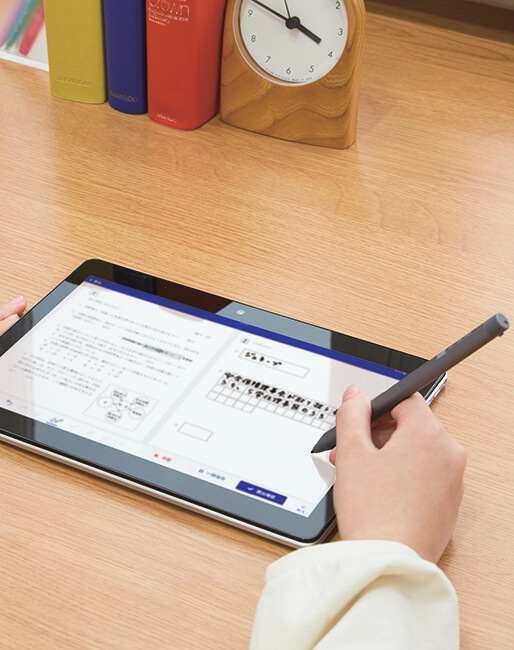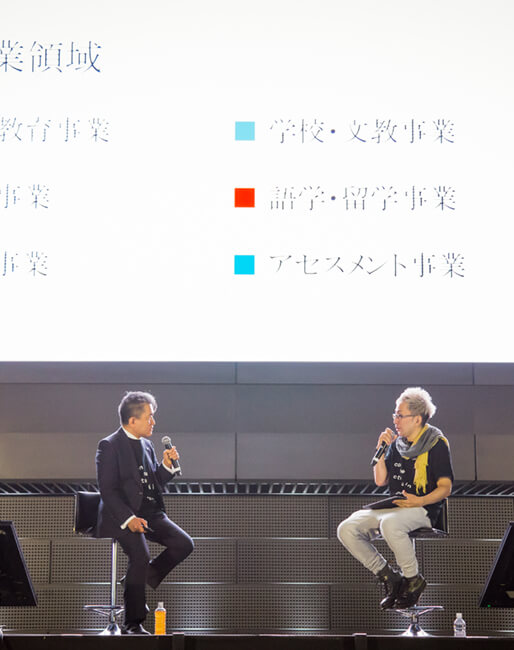“Excellence in Education for Future Global Leaders”
Handwriting and digital tools open up new horizons
Handwriting and digital tools open up new horizons
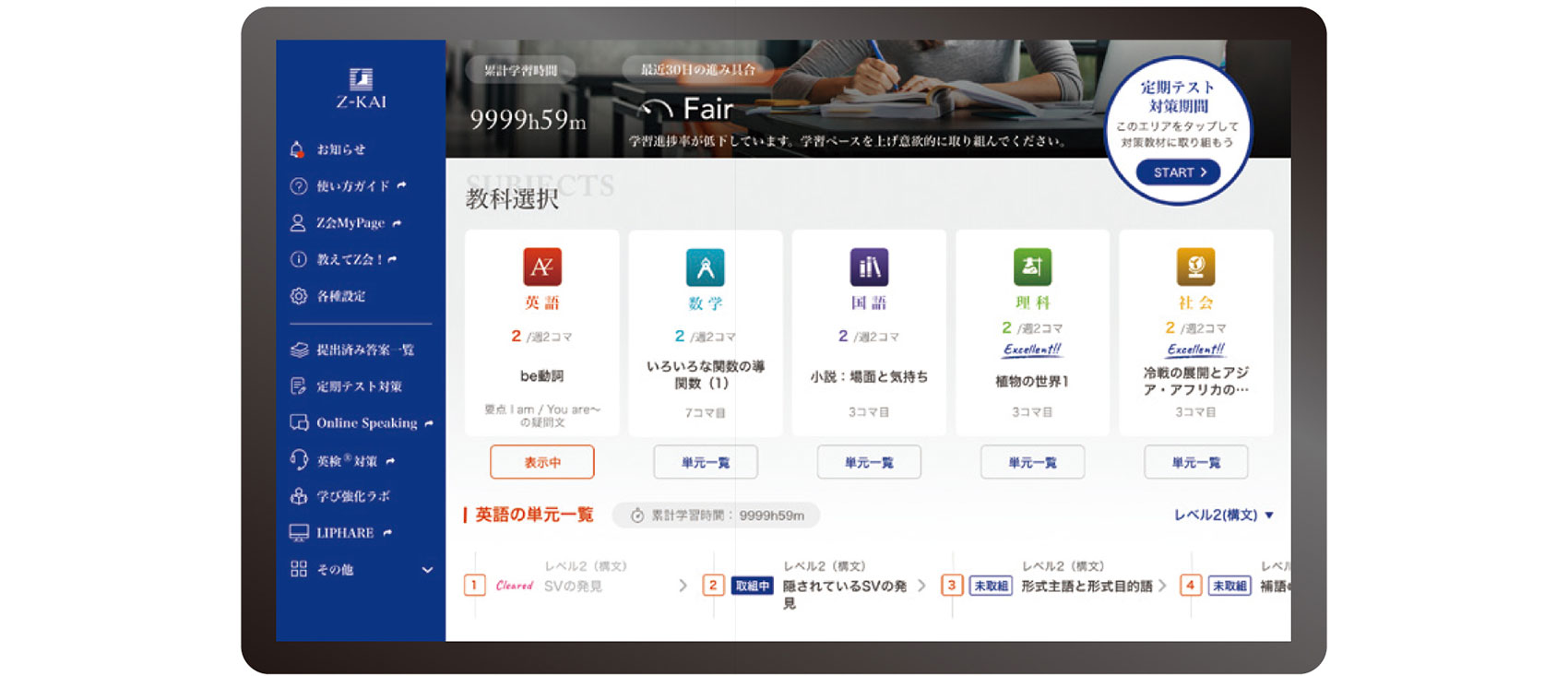
The Z-kai Group has been leading the correspondence education industry for more than 90 years, catering to the needs of learners and students seeking quality education. Correspondence education supported by “handwritten answers” by experienced tutors is now on the verge of transformation by riding on the waves of digitization. Both Z-kai and Wacom are well aware “what handwriting can achieve” and are now set out on a common journey.
RELATED SESSIONS:
ENRICH EDUCATION WITH HANDWRITING AND DIGITAL INK / HANDWRITING X DIGITAL NOW
Front-Runner for 90 Years
The history of the Z-kai Group goes back to 1931. Since its foundation 90 years ago, Zoshinkai Holdings Inc., the Z-kai holding company, has been the front-runner in the field of correspondence education by adopting innovative approaches in line with the needs of the times. On the test papers of the courses, comments by dedicated tutors are always found. For many, attentive comments in distance learning are said to have whetted their appetite for learning.
Founder Yutaka Fujii came up with the innovative idea of combing the “postal service”, the communication means, rapidly spreading in his days, with interactive instruction by “annotating test papers” which resulted in the birth of Z-kai’s predecessor Jitsuryoku-Zoshin-kai. From these early days, Z-kai’s core values have remained the same: Learning by writing. Repeated practices is a key in learning languages and mathematics, i.e. dictation or reading aloud from textbooks or doing math exercises.
By adding to its group other companies similarly devoted to education, Z-kai has grew into a comprehensive educational conglomerate. While keeping correspondence courses as the core business, Z-kai has expanded its operations to include cram schools, corporate training services, foreign language and overseas courses, special needs education and related vocational training, operation of schools overseas and much more. Today, the Z-kai Group is an educational powerhouse with 22 group companies and a total workforce of approx. 3,000, offering a wide range of services for broad target groups from preschoolers to businessmen.
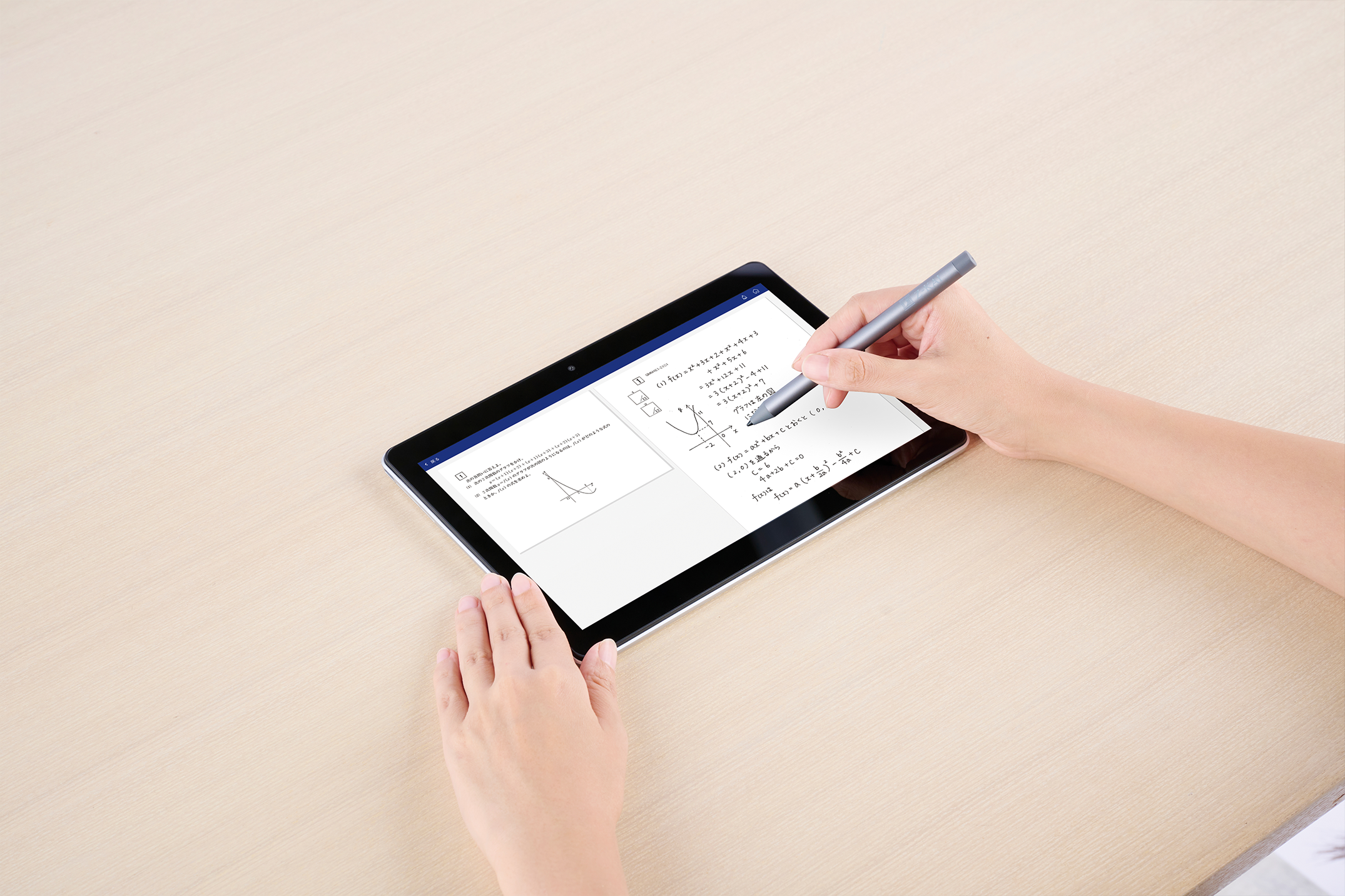
Meaning of “Staying Beyond and Moving with the Times” for the All-Time Front-Runner
Haiku is “eternal and immutable” (fueki) whilst also being “fluid and transitory (ryuko) ”- this is the philosophy of Haiku grandmaster Matsuo Basho. Fueki refers to things staying unchanged in time while ryuko to things subject to change over time. Z-kai has been pursuing “eternal values” (fueki) by keeping alive the founder’s idea of “doing once is better than listening hundred times” while actively adopting to changes in the educational environment and technical innovations to “move with the times” (ryuko).
Fueki and ryuko also serves as a basic principle in its collaboration with Wacom. Z-kai has a wealth of knowledge and experience acquired in providing diversified educational services under the principle of “learning by hand-writing” put in practice. On the other hand, Wacom is the technology leader with proven excellence in providing digital “handwriting” tools. Both companies share the same passion for “handwriting” and are therefore a good match for joint R&D in innovative education services. The first outcome of their joint development are pen tablets and stylus pens customized for Z-kai students. As of spring 2021, Z-kai started to offer “tablet-integrated courses for junior high-school students”, i.e. a new education program using 10.1 inch touch tablets and stylus pens, both of which support Wacom AES 2.0, and WILLTM technology.
Based on a background of many years and their profound knowhow as educators, Z-kai has set high standards for their customized tablets. “We are aware of the possible discomfort, when not properly implemented, of using digital tools for learning, e.g. latency (the time lag between nib movements and ink flow) that feels not quite like writing with a pen on paper. Mr. Jun Watanabe, an IT officer (System Development Sec./IT System Div. ) at Z-kai describes that “a natural pen-on-paper feel and real-time response like on-paper handwriting” were the demands for the design of customized tablets. As an education professional, Z-kai expects its collaboration partner Wacom to live up to its high expectations for technical accomplishment without any compromise. Currently, the COVID-19 pandemic is accelerating the wider use of online learning. Accordingly, there is much room left for the growth of remote courses using tablets.
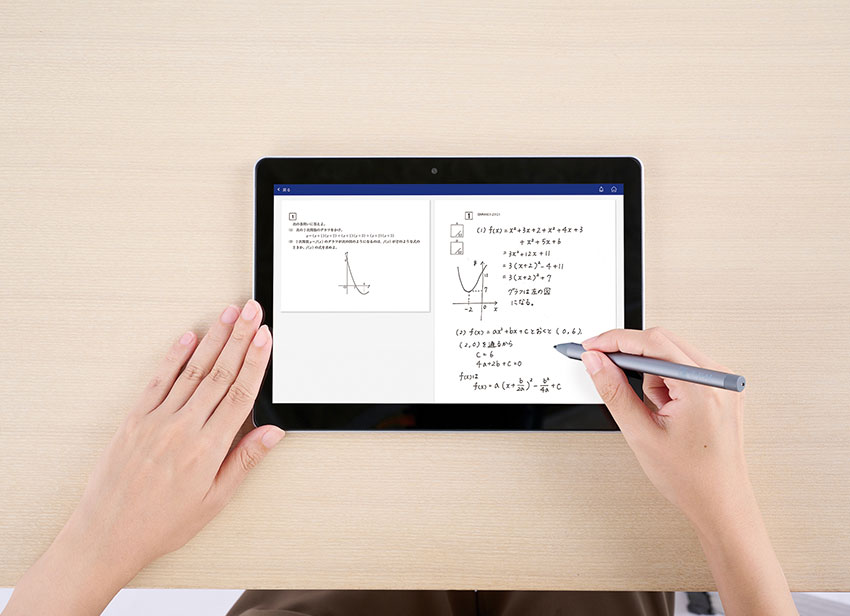
More Fruitful Correspondence - Exchange of Letters Between Students and Tutors
In their joint development, Z-kai and Wacom are now working on the next goal to visualize “the process of arriving at answers”. In the eyes of Z-kai, filled-in test sheets are something like “love letters“ from students. This analogy is no exaggeration if you think of the trusting student-tutor relationship. Course students spend considerable efforts in finishing their test sheets, carefully reading questions, doing the necessary research and working hard by trial and error to arrive at an answer by mobilizing all their knowledge and thinking power. Tutors are not there just to mark what is right or wrong on submitted sheets. Their true role is to decipher the way students think from their answers and write individualized comments to help them move ahead in learning. When checking submitted answers, tutors try to trace back the thinking processes of their students. By identifying “where they went wrong” or “where they missed the point”, tutors write attentive and personalized comments on a test sheet in red ink. Correspondence, i.e. exchange of such letters between students and tutors, nourish the growth of academic performance.
Writing annotations are a leaned skill based on the experience and expertise of the individual tutor. But a new epoch heralded by digital technology now allows the “visualization of answer finding”. In this way, instructive comments provided by tutors should gain even greater significance. When learning with a digital pen and tablet, much more data on the thinking process in tests can be captured as digital data (handwritten data in “digital ink”, to use Wacom’s term) to an extent unthinkable in the days of analog learning. Such digital data allow tutors to find out the “questions that students started to work on first”, “a history of trial and errors”, “most challenging tasks on which students dwelled” as if they were standing behind their students. Up to now, the skill of “tracing back the process of learning” has been a function of the tutor’s experience and expertise. The quality of a tutor’s annotations should be enhanced by sharing the expertise among all tutors to result in highly individualized student-based tutoring.
Here comes an association with the relationship between physicians and medical AI. Their relationship is complimentary: X-ray pictures are processed by AI capable of higher-precision analysis through machine learning while physicians make therapeutic decisions based on the results of AI analysis. What Z-kai and Wacom are aiming at through their collaboration is sensible job sharing between technology and humans. Digital technologies facilitate analyzing the process of students’ thought processes including a history of past errors, based on which tutors gain valuable insights for more effective teaching.
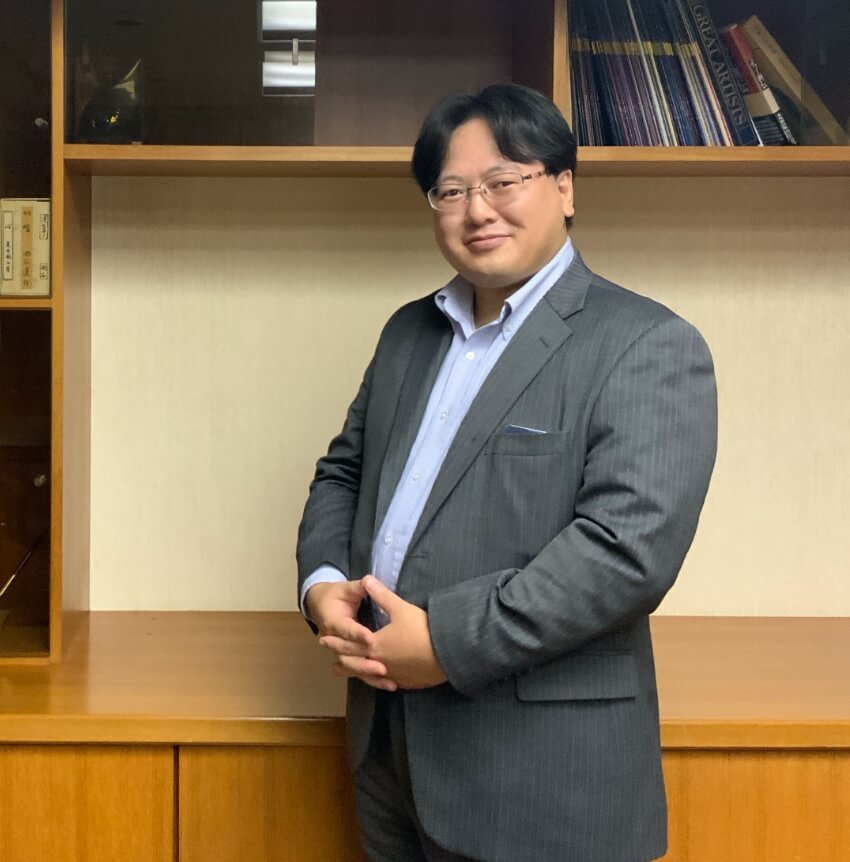
Better “Reading Between the Lines“ through Digitization
Needless to say, what distinguishes correspondence courses of industry leader Z-kai from others is the quality of their tutors in “reading the mind of students”. Currently, over 10,000 teaching professionals are registered as Z-kai tutors, including graduates of prestigious universities and former school teachers. For many of them, tutoring in correspondence courses is not just a job for living, rather a profession they chose for their love of teaching. On the other hand, their tutors are also being “tutored” in order to keep the high standard of Z-kai’s education quality. The power to wield a red ink pen is denied for tutors unless they keep training themselves for enhancement and upkeep of their their tutoring skills. Writing comments by reading students’ mind is a very human act. Z-kai hopes to enhance its value by analyzing digital ink data made available through the collaboration with Wacom. Mr. Watanabe describes DX (digital transformation) as a potential blessing for their business:
“The path that students follow in arriving at an answer is a valuable source of information for tutors in our courses. Data gained by visualizing the thinking process can be used for analyzing how individual student solved questions, and furthermore for deducting tendencies of the entire student population by way of data comparison. We hope to step up our distant tutoring to the next level by benefiting from data made available by digital technologies.”
In the Heian period of ancient Japan, poems (“waka”) were a means of communication between lovers. People exchanged poems not only for the sake of literary beauty but also to find “a sense of being connected” by reading between lines and sharing joys and sorrows. Test answers can be a means of communication between tutors and students located in different places and at different times. The idea that cutting-edge technology makes this communication even more fruitful is surely exciting.
editor / writer_ Chikara Kawakami

